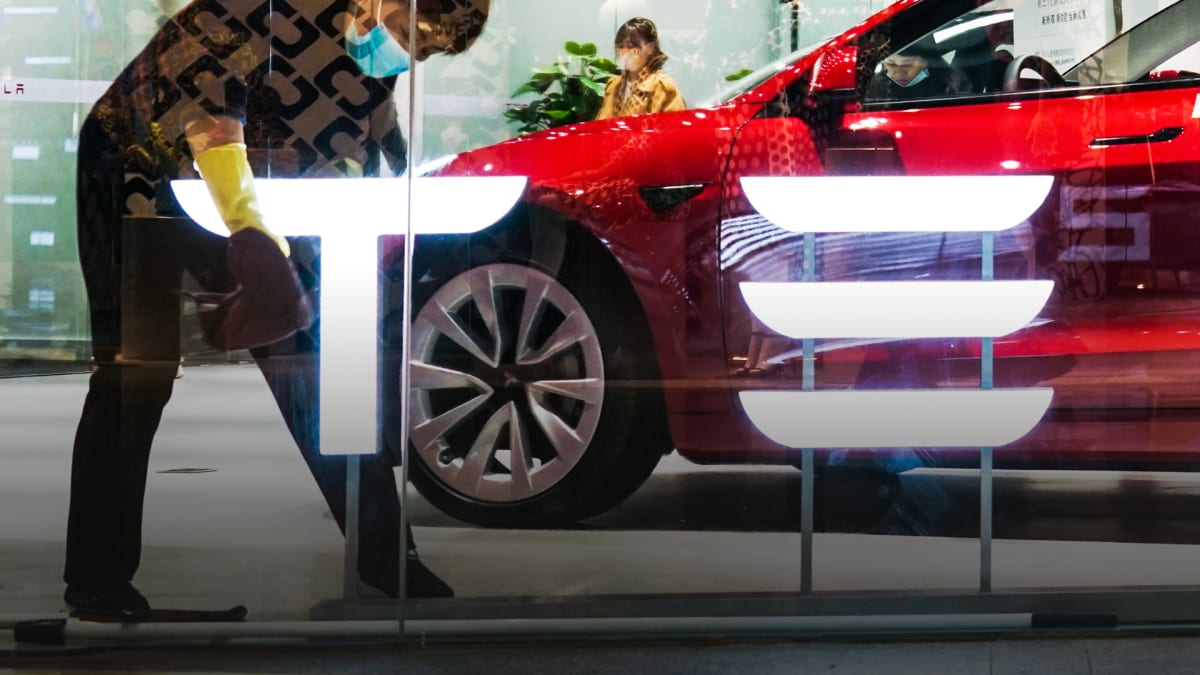
This is an exceptional year for investors who have bet on Tesla's short-term stock market crash.
The electric vehicle maker is one of the shortest companies on Wall Street. Short selling stock is a bet that the price will drop.
The Model Y maker is having one of its worst years in a long time. The macroeconomic environment is uncertain: the increase in interest rates by the Federal Reserve to fight inflation which is at its highest in 40 years, the energy crisis in Europe, the resurgence of covid-19 in China, all raise questions about growth.
Faced with all these uncertainties about the health of the economy, investors are reducing most risky asset positions, like technology stocks, even of companies with solid fundamentals.
"Macro conditions are difficult: energy in Europe, real estate in China & crazy Fed rates in USA," Musk said about the drop in Tesla's stock on Dec. 8.
Stock Is Down By 49%
Add to this the acquisition of the social network Twitter by Musk on Oct. 27 after a six-month battle. This transaction dominates the attention of the Techno King, who has since focused all his communication to his efforts to completely relaunch the platform. All this, however, is at the expense of Tesla (TSLA).
"Biggest worries/overhangs for the Tesla story remain: Twitter overhang that Musk needs more capital to fund (TSLA shares) losses," Wedbush analyst Dan Ives wrote on Twitter on Dec. 9. "China demand worries, and Musk attention now focused on Twitter-not TSLA. $550 bn of mkt cap of TSLA gone since Twitter deal. Musk brand key to TSLA."
Tesla’s stock has fallen more than 49% this year, translating into a loss in market capitalization of around $550 billion.
It is therefore no surprise that Tesla is the most profitable company for short sellers in 2022, according to a study by ORTEX Analytics. In the month of November alone, anti-Tesla investors saw their bets bring in $2.37 billion, according to this study.
"Elon Musk may loathe short-sellers with a passion, but he helped Tesla bears reap $2.37 billion in profits during the month of November," the study concluded. "That made the electric vehicle giant the top stock for short-seller profits last month."
"Not only has the chaos at Twitter undermined investor confidence in Tesla, but the financial ties within Musk’s empire became even clearer when the billionaire sold approximately $4 billion of Tesla stock in early November. Musk told remaining Twitter employees that the move was designed to 'save Twitter,' raising tangible fears that continued deterioration of the social media platform’s business could lead to Musk unloading more Tesla shares."
Year-to-date, short sellers have made some $11.59 billion in mark-to-market profits, according to Ihor Dusaniwsky, Managing Director of Predictive Analytics.
Two Bad Years
This represents a return of almost 60% on the $19.6 billion invested in short positions on Tesla in 2022. For the past two years, short sellers have burned their fingers on Tesla. In 2021, they collectively lost $10.3 billion because the Model Y maker's stock gained 50% that year. The losses of short sellers were colossal in 2020: that year they collectively lost nearly $41 billion in the face of an exceptional surge in Tesla stock.
Short sellers betting against Tesla believe that the group now faces strong competition from legacy carmakers, Chinese automakers and startups. They thus express their doubts about Tesla's ambitions to dominate the sector.
On social networks, the hashtag #TSLAQ has never been so fashionable in recent weeks. The symbol TSLAQ is used on social media by the most extreme critics of Musk and Tesla. They are convinced that the manufacturer of electric vehicles will go bankrupt. (Until 2016, the letter "Q" was placed at the end of a Nasdaq stock symbol to indicate that the company had filed for bankruptcy, according to Investopedia.)
"I expect a very serious breakdown to a new range with it being very unlikely we will see upper $100s for a very long time. Remember $TSLA is slowing and it’s still has a cap of $550B. PT $66 $TSLA $TSLAQ," posted, for example, on Dec. 9, Twitter user 'Political Reality, who presents himself as an investor who shorted Tesla.
Musk viscerally hates those who bet against Tesla.
Last May, the richest man in the world attacked Bill Gates, the former richest man in the world, because the Microsoft (MSFT) co-founder had a short position of $500 million against Tesla.
"Sorry, but I cannot take your philanthropy on climate change seriously when you have a massive short position against Tesla the company doing the most to solve climate change," Musk had written to Gates. It was the end of a discussion the two billionaires were having about working together for common causes.







